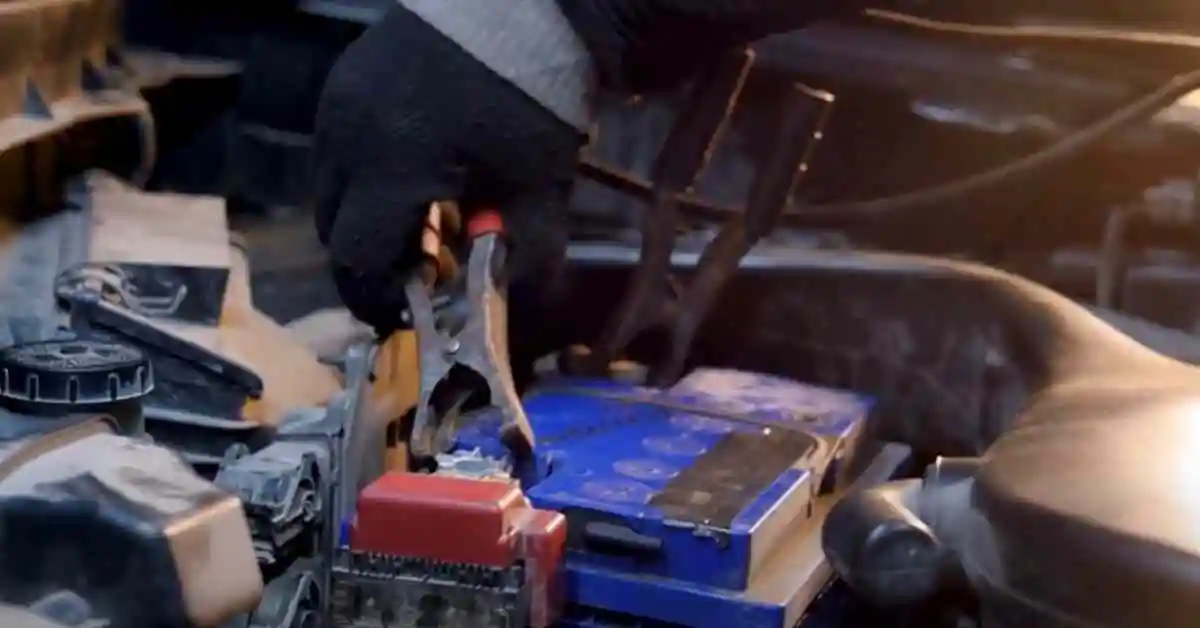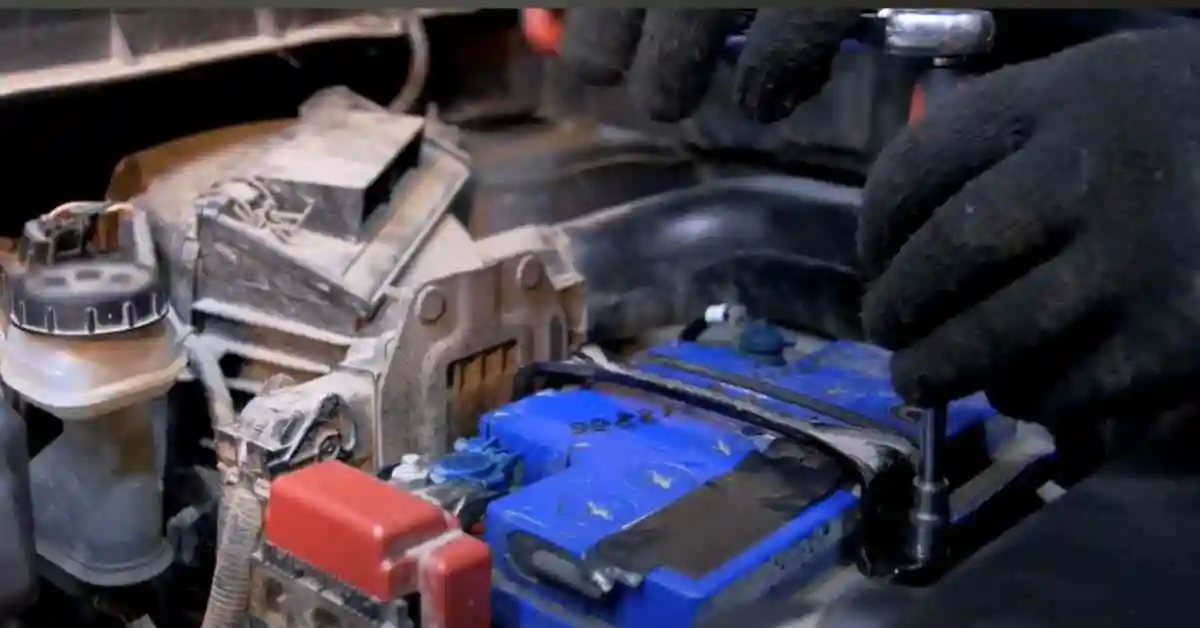That mysterious buzzing sound from your car battery can be more than just an annoyance – it could be a warning sign of serious electrical issues. As an automotive electrical specialist with over 15 years of experience diagnosing and fixing vehicle electrical systems, I’ve encountered countless cases of car batteries making buzzing noises.
Through thousands of successful repairs and diagnostics, I’ve developed a deep understanding of what these sounds indicate and how to address them properly. Let’s dive into the causes why Car Battery Making Buzzing Noise?, solutions, and preventive measures for that concerning buzz coming from your car’s battery area.
Understanding Battery Buzzing Sounds
When a car battery makes a buzzing noise, it’s rarely the battery itself that’s the source of the sound. Through years of diagnostic work, I’ve found that the buzzing usually originates from related electrical components or systems connected to the battery.
Most vehicle owners don’t realize that modern cars have complex electrical systems with multiple components that can produce buzzing sounds near the battery. These sounds often indicate voltage regulation issues or problems with the charging system.
The type and pattern of the buzzing noise can provide valuable diagnostic information. I’ve learned to distinguish between different electrical issues based on the characteristics of the buzzing sound and when it occurs.
Common Causes of Battery Area Buzzing
Alternator Issues
One of the most frequent causes I’ve encountered when investigating a car battery making buzzing noise is alternator problems. The alternator’s bearings or internal components can create buzzing sounds when they begin to fail.
Through diagnostic testing, I’ve found that worn alternator brushes often create a distinctive buzzing or whining sound that changes pitch with engine speed. This relationship between engine RPM and sound intensity is a key diagnostic indicator.
In many cases, the buzzing from a failing alternator becomes more noticeable during electrical load changes, such as when using the air conditioning or headlights. I always test these scenarios during diagnosis.
Relay Problems
Faulty relays near the battery can create buzzing sounds that many mistake for battery noise. I’ve replaced countless relays that were rapidly clicking or buzzing due to voltage fluctuations or mechanical wear.
The main relay, particularly in the charging system, can create a constant buzzing when it’s not functioning properly. This often occurs when the relay’s contacts become worn or damaged over time.
Modern vehicles have multiple relays in the engine bay, and identifying the specific problematic relay requires systematic testing. I’ve developed efficient diagnostic procedures to pinpoint the exact source of relay-related buzzing.
Voltage Regulator Issues
The voltage regulator plays a crucial role in maintaining stable electrical system operation, and when it fails, it can cause various unusual sounds, including buzzing near the car battery.
In my experience, a failing voltage regulator often creates a distinctive buzzing that’s most noticeable when the engine is running at idle. This occurs as the regulator struggles to maintain consistent voltage output.
The sound typically changes with engine speed and electrical load, providing important diagnostic clues. I’ve learned to recognize these patterns through years of troubleshooting various vehicle electrical systems.
Diagnosing the Source of Battery Buzzing
Professional Diagnostic Approach
When investigating a car battery making buzzing noise, I always start with a systematic diagnostic approach. This begins with a complete electrical system scan and voltage testing under various conditions.
Load testing the battery and charging system provides crucial information about system health. I’ve found that many buzzing issues are actually symptoms of deeper electrical problems that require comprehensive testing to identify.
Visual inspection of all electrical connections and components near the battery is essential. I’ve often discovered loose connections or corroded terminals that contribute to unusual electrical sounds.
DIY Diagnostic Steps
While professional diagnosis is recommended, there are several initial steps vehicle owners can take to help identify the source of battery buzzing:
Listen carefully to determine if the buzzing changes with engine speed or electrical load. This information can be valuable for diagnosis and helps narrow down potential causes.
Check for obvious signs of battery terminal corrosion or loose connections. In my experience, these simple issues sometimes create unexpected electrical noises that can mimic more serious problems.
Solutions and Repairs
Professional Repairs
When addressing a car battery making buzzing noise, professional repairs often involve component replacement or system rehabilitation. I typically start with the most likely cause based on diagnostic results.
Alternator replacement is a common solution when the buzzing is related to charging system issues. I always recommend using high-quality replacement parts to ensure long-term reliability and prevent recurring problems.
Relay replacement or electrical system repairs require precise work to ensure proper system function. Through years of experience, I’ve learned that attention to detail during these repairs is crucial for preventing future issues.
Preventive Maintenance
Regular electrical system maintenance can prevent many issues that cause battery buzzing. I recommend scheduled inspections and testing to catch potential problems early.
Keeping battery terminals clean and connections tight helps prevent many electrical issues. I’ve seen many cases where simple maintenance could have prevented more serious problems.
FAQs About Car Battery Making Buzzing Noise?
1. Is it normal for a car battery to make a noise?
No, it’s not normal for a car battery to make noise. If you hear a buzzing, sizzling, or hissing sound, it may indicate a problem with the battery or electrical system.
2. What to do when a car battery makes a sizzling sound?
If you hear a sizzling sound, it could indicate that the battery is overheating or has a short circuit. Immediately turn off the engine and inspect the battery. If the battery is swollen or leaking, it’s best to replace it and have a professional check the electrical system.
3. Are there warning signs before a car battery dies?
Yes, common warning signs include:
Difficulty starting the car.
Dim headlights or electrical issues.
A battery warning light on the dashboard.
The car battery is over 3 years old and showing signs of wear.
4. Why is my car making a weird buzzing noise?
A buzzing noise could be coming from various sources in the car, such as the battery, alternator, or electrical components. If it’s coming from the battery, it could indicate an issue like overheating, sulfation, or a short circuit.
5. Why is my car battery buzzing?
A buzzing noise from the battery can be caused by internal problems like excessive heat, overcharging, or a faulty connection. In some cases, it may be due to the battery trying to discharge or overcharging.
6. What will a bad battery sound like?
A bad battery may make a sizzling, buzzing, or crackling sound, often due to overheating or internal short circuits. If you notice these sounds, it’s essential to have the battery inspected and replaced if necessary.


